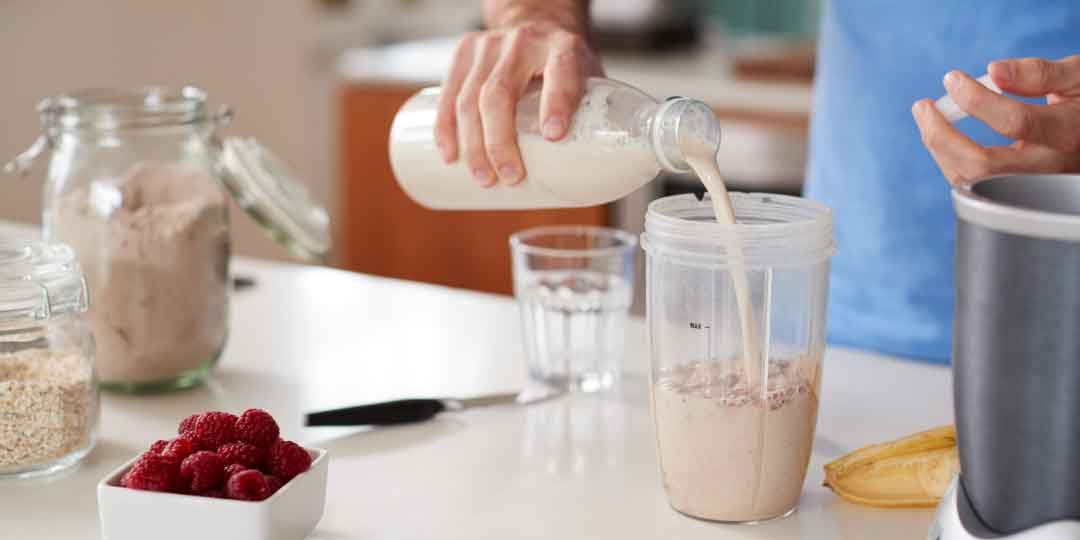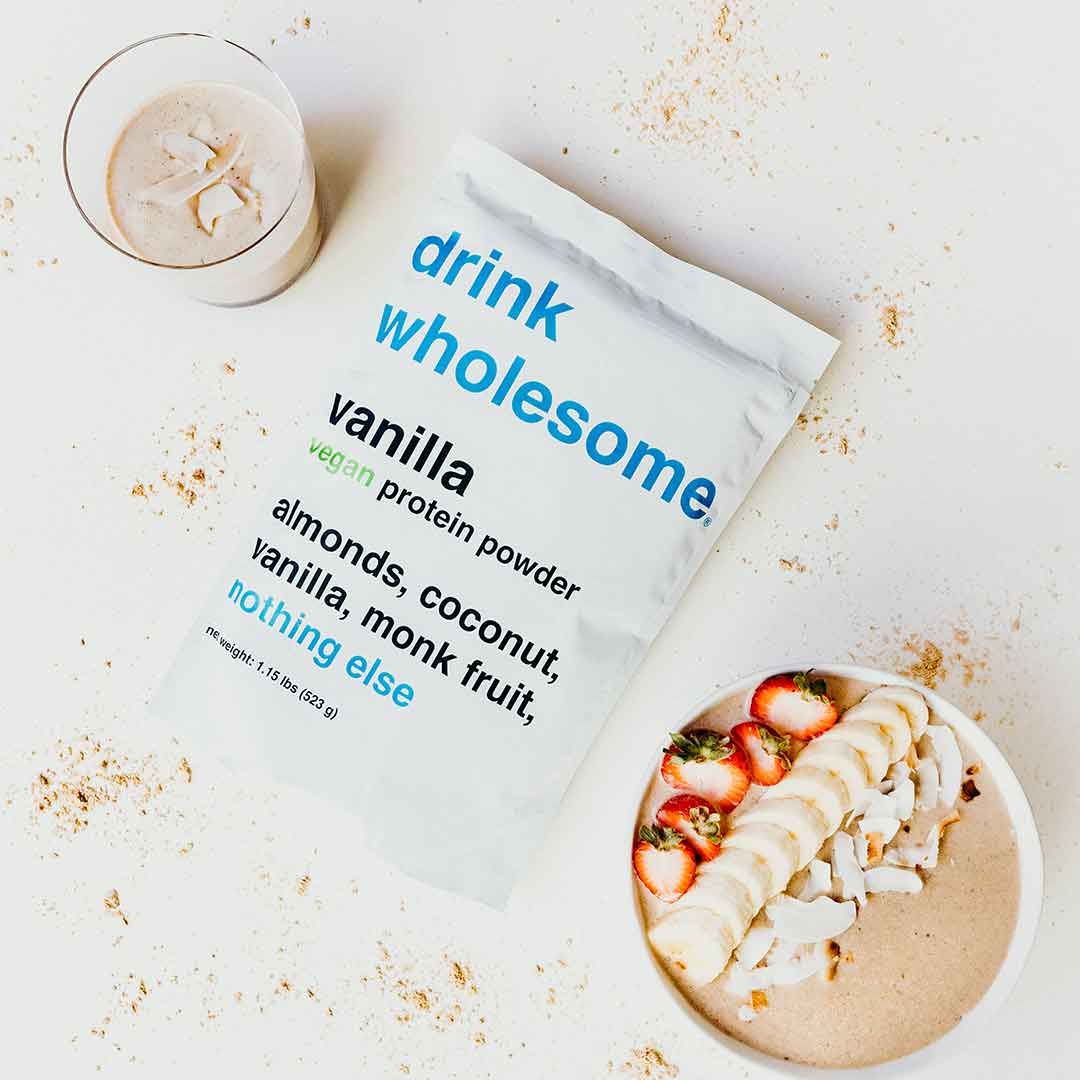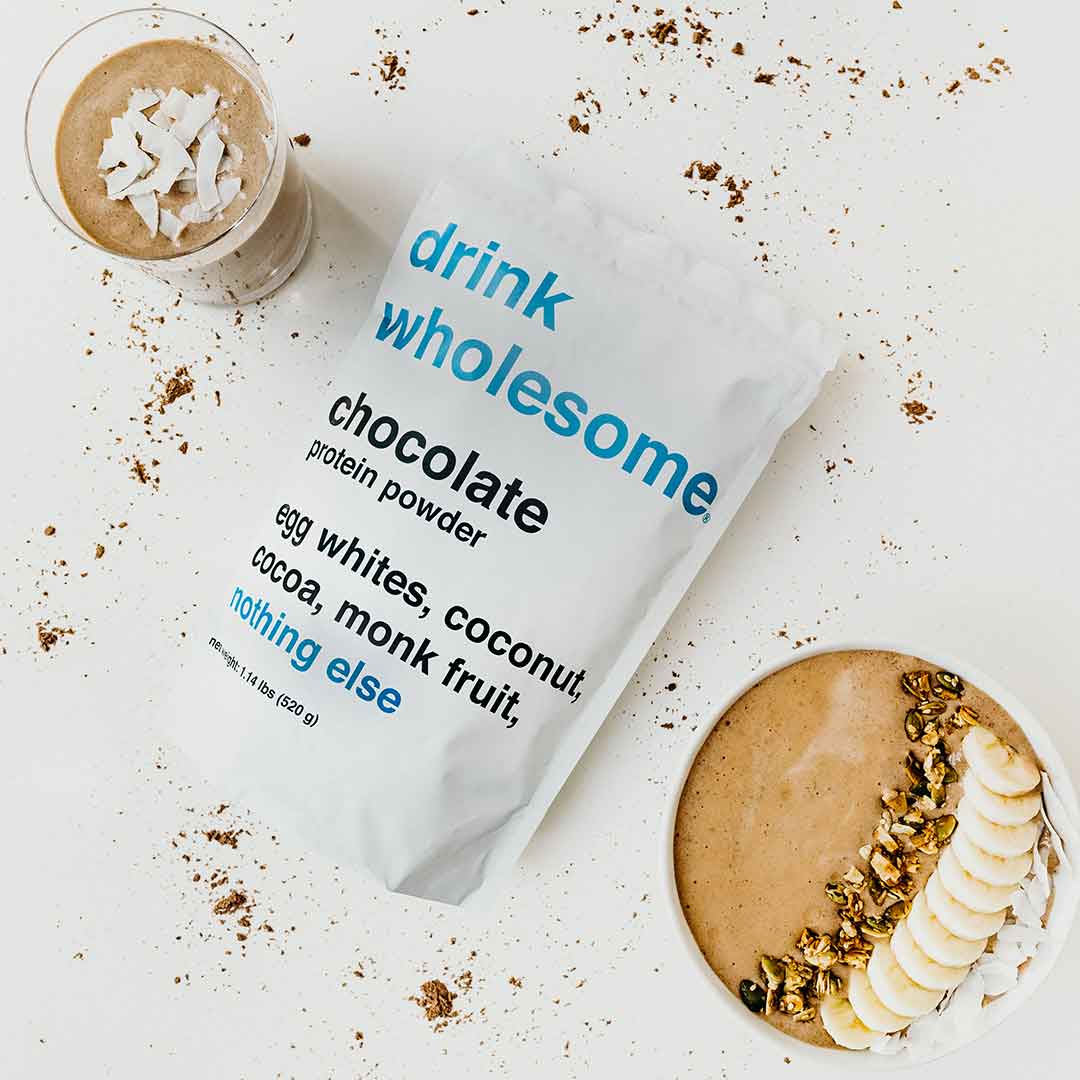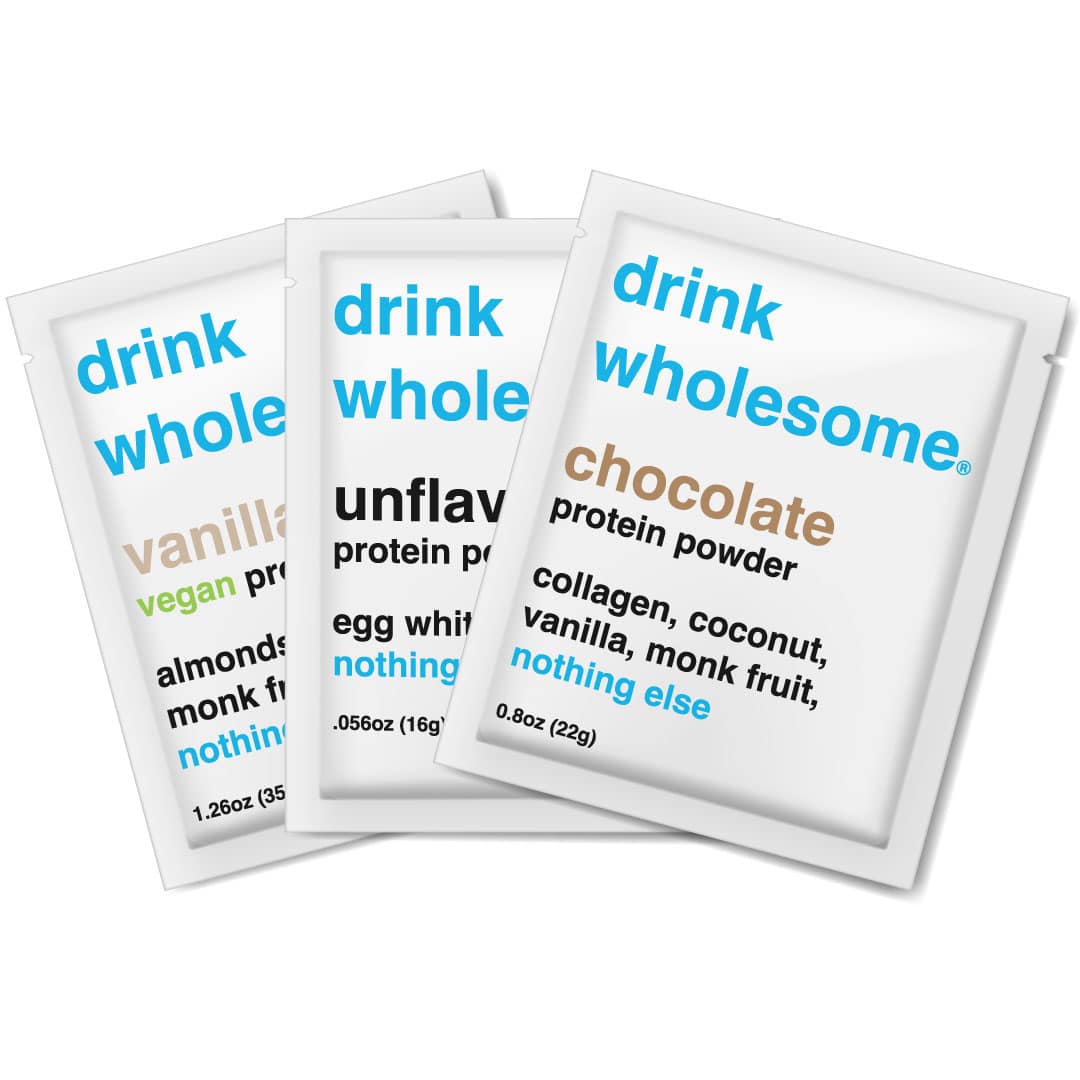How long does it take to digest a protein shake?
How long does it take to digest a protein shake? Learn more about protein shakes, and what makes some easier to digest than others.
Protein shake digestibility.
Written by Jack Schrupp & endorsed by Baylee Reller, RDN
What is digestion?
Digestion refers to the complex process that breaks down food into nutrients that can be absorbed by the body.
How fast do we digest protein?
Different types of dietary protein are digested at different rates. According to a study published in the International Journal of Sport Nutrition and Exercise Metabolism, amino acids (the building blocks of protein) are absorbed at the rate of 1.3 grams to 10 grams an hour. 20 grams of a fast digesting protein might therefore only take 2 hours to digest, whereas 20 grams of a slow digesting protein might take 15+ hours to digest.
Does protein digestion (absorption) rate matter?
Research suggests that the speed of protein digestion and amino acid absorption from the gut affects postprandial metabolic response, which is a fancy term for the complicated physiological process that breaks down food into glucose (sugar), fatty acids (fats), and amino acids (protein) and supplies your muscles with fuel. Slow-digesting protein is found to inhibit muscle protein breakdown, whereas fast-digesting is found to promote muscle protein synthesis.
In other words, slow-digesting dietary protein slows the process of breaking down muscles and fast-digesting dietary protein helps with building muscles. There are therefore possible metabolic advantages to eating both slow and fast-digesting proteins.
What do we know about the digestion rate of protein shakes?
The study referenced above only tested the impact of protein digestion rate when proteins were eaten alone, and the authors acknowledge that the presence of other macronutrients like carbohydrates and fats would have likely affected the results. Because most protein shakes contain added ingredients, this study therefore does not tell us much about how slowly or quickly you will digest your protein shake.
If you drink pure whey protein isolate with nothing but water, it is safe to say that it will only take a few hours to digest, but who does that? Most protein shakes, whether they are store-bought or homemade, contain a number of added ingredients that can affect that rate at which the protein is absorbed. They can also affect how the protein shake makes you feel.
What really makes a protein shake easy to digest?
Unless you are training for the Olympics, worrying about whether or not a protein is slow or fast-digesting is a waste of time. Any type of protein can help you reach your wellness goals, and no one type is significantly better than another – assuming you are eating a balanced diet. Moreover, if you spend too much time worrying about slow and fast-digesting proteins, you might forget about what really matters: the ingredient list.
As you now know, the added ingredients in your protein shake can have a big impact on your digestion. Common additives like emulsifiers, thickeners, artificial sweeteners, and flavors are hard to digest, and can cause side effects, slow digestion, even impair your ability to digest food. Keep reading to learn more.
Why drink wholesome?
drink wholesome is additive-free.
One of the reasons why we make the easiest protein powder to digest is that we, unlike most protein powder companies, do not use food additives. Even in small amounts, additives can trigger gastrointestinal (GI) side effects like bloating, cramps, constipation, diarrhea, and flatulence, especially for individuals with pre-existing gut issues.
The issue with additives is that they look nothing like real food, and are therefore hard to break down. As a result, one of two things can happen: either the intestines absorb excess water, leading to diarrhea, or the additives feed your gut bacteria, which release gas. Excessive gas can lead to bloating, flatulence, stomach pain, and even slow colonic transit – the amount of time it takes food to move through the digestive tract.
Here is a list of the most common food additives in protein powder:
acacia gum, acesulfame potassium, artificial flavors, aspartame, carrageenan, cellulose gum, dextrin, dextrose, erythritol, gellan gum, guar gum, gum arabic, inulin, locust bean gum, “natural” flavors, maltodextrin, rice syrup solids, soy lecithin, silica, sucralose, sunflower lecithin, xanthan gum, xylitol
The real issue with eating additives, however, is that they can cause serious problems in the long run. Whether you have gut issues or not, regularly eating food with additives can disrupt regulatory pathways in your intestines. This makes it more likely for you to develop inflammatory bowel disease (IBD) and other inflammatory disorders. Moreover, some additives, especially artificial sweeteners, can disturb the delicate balance of your gut microbiome, affecting how you digest food and absorb nutrients.
the alternative:
Protein Matrix Comprised of (Whey Protein Concentrate, Whey Protein Isolate, Calcium Caseinate, Micellar Casein, Milk Protein Isolate, Egg Albumen, Glutamine Peptides), Polydextrose, Sunflower Creamer (Sunflower Oil, Corn Syrup Solids, Sodium Caseinate, Mono- and Diglycerides, Dipotassium Phosphate, Tricalcium Phosphate, Soy Lecithin, Tocopherols), Natural and Artificial Flavor, MCT Powder (Medium Chain Triglycerides, Nonfat Dry Milk, Disodium Phosphate, Silicon Dioxide), Lecithin, Cellulose Gum, Salt, Yellow 5, Sucralose, Acesulfame Potassium, Papain, Bromelain
drink wholesome is dairy-free.
Another reason why we make easily digestible protein powder is that we do not use dairy-based proteins. In contrast, a lot of protein powders use whey and/or casein protein, which are byproducts of making cheese and yogurt.
These dairy-based protein sources are known for causing digestive problems, especially for about one-third of adults who have lactose intolerance. When someone is lactose intolerant, they lack the enzymes needed to fully break down lactose, the sugar in dairy. As mentioned before, this partially digested food can lead to unpleasant GI symptoms.
drink wholesome is made with real foods.
A final reason why we make the most digestible protein powder is that we do not use protein concentrates or isolates. Almost all other protein powders use these protein sources, which are basically foods stripped down to only the protein.
Producing protein concentrates and isolates requires extensive mechanical and chemical processing. In some cases, chemical solvents like hexane are used to extract the protein from its natural source. As a result, what you add to your protein shake does not resemble real food.
Your digestive system is meant to handle minimally-processed or unprocessed whole foods, not protein concentrates and isolates. This is why emerging research suggests they may disturb the balance of the gut microbiome.
Apart from its role in digestion, the gut microbiome acts as a protective barrier against harmful pathogens, helps educate the immune system, and influences various physiological processes. Imbalances in the gut microbiome have therefore been strongly linked to the development of numerous chronic illnesses. Considering this connection, I strongly recommend avoiding protein powders made with protein concentrates and isolates.
Instead of protein concentrates or isolates, we make the most easily digested protein powder with egg whites and almonds. The process of turning egg whites into protein powder is straightforward: they are pasteurized and dried. Likewise, almonds go through minimal processing, including roasting, pressing (to reduce oil content), and grinding. These simple steps yield protein powders that are easily digested.
Unlike protein isolates and concentrates, real foods contain natural enzymes and digestive aids that help your body efficiently digest them. Moreover, egg whites are low in fiber, low FODMAP content, alkaline (maintain healthy pH levels in the gut), and promote the growth of good gut bacteria. Our satisfied customers thus consistently leave positive feedback, reporting fewer digestive issues when consuming our egg white protein powder compared to other protein supplements.
For those following a vegan lifestyle or unable to eat eggs, our vegan almond protein powder is a fantastic alternative. Almonds have prebiotic effects, nourishing the diversity and composition of the gut microbiome. They also contribute to maintaining healthy and regular bowel movements. In conclusion, we prioritize the well-being of your gut by making protein powders with minimal processing.
“Having tried my fair share of protein blends. This one is definitely at the top of my preferences. Digest easily as well as tastes and mixes great.” – Sage
Read more reviews or take the quiz.
Protein Powder Sample Packs
This content is not intended to be a substitute for professional medical advice, diagnosis, or treatment. drink wholesome is not intended to diagnose, treat, cure or prevent any disease.








